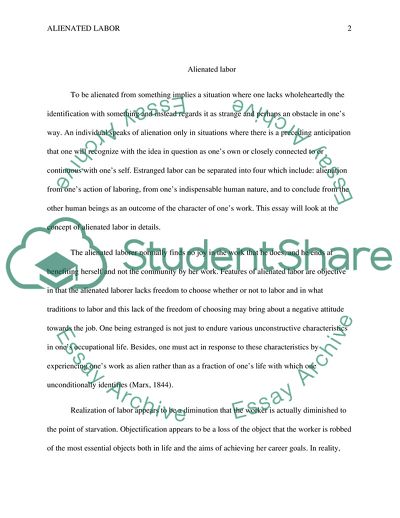Cite this document
(Alienated Labor Essay Example | Topics and Well Written Essays - 1250 words, n.d.)
Alienated Labor Essay Example | Topics and Well Written Essays - 1250 words. https://studentshare.org/social-science/1879053-alienated-labor
Alienated Labor Essay Example | Topics and Well Written Essays - 1250 words. https://studentshare.org/social-science/1879053-alienated-labor
(Alienated Labor Essay Example | Topics and Well Written Essays - 1250 Words)
Alienated Labor Essay Example | Topics and Well Written Essays - 1250 Words. https://studentshare.org/social-science/1879053-alienated-labor.
Alienated Labor Essay Example | Topics and Well Written Essays - 1250 Words. https://studentshare.org/social-science/1879053-alienated-labor.
“Alienated Labor Essay Example | Topics and Well Written Essays - 1250 Words”. https://studentshare.org/social-science/1879053-alienated-labor.


